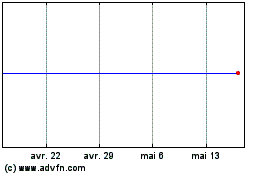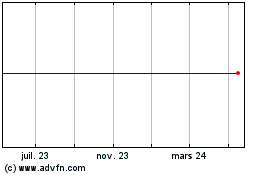By Akane Otani
The Nasdaq Composite is on the cusp of exiting a bear market,
rebounding nearly 20% from its Christmas Eve low and highlighting
the resilience of the technology shares that have long powered the
market higher.
The index heavily weights shares of technology firms like Apple
Inc., Amazon.com Inc., Google parent Alphabet Inc. and Facebook
Inc., which cumulatively lost hundreds of billions of dollars in
market value in the final months of 2018.
The rout, many said, was fueled by dimming confidence in the
domestic and global economies, then likely exacerbated by
machine-run trading that accelerated the declines.
But in recent weeks, rising optimism about U.S.-China trade
negotiations and U.S. monetary policy has helped propel stocks
across the board higher. And earnings reports from technology
behemoths, while mixed, have proved to be better than many
investors had feared.
Apple's revenue and profit slipped as its China sales
disappointed, although shares jumped after Chief Executive Tim Cook
reassured investors that the company wasn't taking its "foot off
the gas."
Facebook delivered record profit for the latest quarter, proving
its business continued to grow even as it faced backlash from users
and regulators. Alphabet posted a jump in quarterly revenue, along
with rising costs outside its core online-advertising business.
Those developments have pushed the Nasdaq up more than 19% from
its December low -- and within 1 percentage point of exiting
bear-market territory and kicking off a new bull run.
If the index achieves the feat in the next four days -- closing
at or above 7431.504 -- it would mark its second fastest such
rebound since its inception in the 1970s, according to Dow Jones
Market Data. Despite the recent surge, the index is still down 9.1%
from its Aug. 29 high.
Meanwhile, the S&P 500 and Dow Jones Industrial Average,
which narrowly avoided entering a bear market, have also surged
since Christmas. The indexes are both up more than 16% from their
lows.
"To say companies like Amazon, Google or Facebook are now in
some way finished or at the end of their growth cycle -- I don't
see that. We're just at the beginning," said Christopher Rossbach,
chief investment officer at private investment office J. Stern
& Co., which holds shares of the three companies.
Many of the technology shares leading the Nasdaq's rebound were
among the hardest hit on its slide down last year.
Semiconductor companies, many of which took a hit as they warned
about faltering demand from China, have raced past the Nasdaq's 11%
gain for the year. Advanced Micro Devices Inc. is up 26%, while
Micron Technology Inc. has risen 31%.
Social-media firms whose online platforms were hurt by backlash
among regulators and users last year have also charged higher, with
Facebook notching a 30% advance and Twitter Inc. rising 19%.
Yet some of the companies exerting the biggest pull on the stock
market have enjoyed a more subdued recovery, suggesting the recent
uptick in technology shares is far from the indiscriminate rally
that many investors worried about last year.
Apple and Amazon have performed roughly in line with the S&P
500 this year, while Microsoft Corp. has trailed the broad index.
The three companies have jostled for the title of the world's
largest publicly traded company in the past few months, with Apple
reclaiming the title on Wednesday after its post-earnings
climb.
What has become apparent in the recent flurry of mixed earnings
reports is that company results "aren't great, but they're better
than the worst" investors were expecting, said Nicholas Colas,
co-founder of DataTrek Research.
One factor that may be reeling in investors' enthusiasm for
technology this year: Many companies in the industry are grappling
with slowing sales and user growth following years of reliably
blockbuster numbers.
More than 80% of technology companies in the S&P 500 have
reported stronger-than-expected earnings, the highest share of
earnings beats among the index's 11 sectors, according to RBC
Capital Markets. But less than half of technology companies have
topped analysts' sales estimates, making the sector among the worst
in the S&P 500 on that metric.
Technology stocks slid in early January after Apple slashed its
quarterly revenue forecast for the first time in more than 15
years, citing an unexpectedly severe drop in iPhone sales in
China.
Still, many of the sector's stocks managed to end the month
higher -- a sign that investors haven't wholly abandoned bets on
growth.
Amazon accounted for 5.4% of the S&P 500's gain in January,
making it the biggest contributor to the index's rise that month,
according to Howard Silverblatt, senior index analyst at S&P
Dow Jones Indices. Facebook came in second, accounting for 5% of
the S&P 500's January rise, while Netflix, in fourth, was
responsible for 2% of the index's gain.
Apple appears to have effectively reset the expectations for
many investors, Mr. Colas said.
For investors like Mr. Rossbach, whose firm has held Amazon
shares for more than a decade, short-term developments like a rise
in costs aren't necessarily a reason to shy away from technology
bets altogether.
"These companies are still growing extremely strongly," Mr.
Rossbach said.
To receive our Markets newsletter every morning in your inbox,
click here.
Write to Akane Otani at akane.otani@wsj.com
(END) Dow Jones Newswires
February 06, 2019 17:19 ET (22:19 GMT)
Copyright (c) 2019 Dow Jones & Company, Inc.
Twitter (NYSE:TWTR)
Graphique Historique de l'Action
De Juin 2024 à Juil 2024

Twitter (NYSE:TWTR)
Graphique Historique de l'Action
De Juil 2023 à Juil 2024
